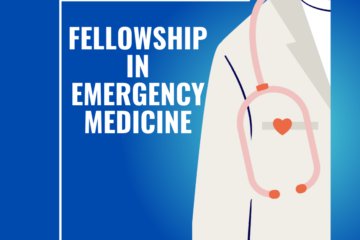
Cardiovascular diseases (CVD) constitute a spectrum of health conditions that impact the heart and blood vessels. Notable examples encompass coronary artery disease, heart failure, stroke, and hypertension. The World Health Organization (WHO) identifies CVD as the primary cause of global mortality, contributing to approximately 17.9 million deaths each year. This underscores the significant public health challenge posed by cardiovascular diseases on a global scale.
The epidemiology of Cardiovascular disease focuses on the study of the distribution and determinants of cardiovascular diseases (CVD) within populations. This field plays a crucial role in unraveling the complex web of factors influencing heart health, including genetic, environmental, behavioral, and socioeconomic determinants.
Cardiovascular epidemiology is the study of heart disease patterns on a population level. This helps in the development of effective prevention and intervention strategies. As cardiovascular diseases continue to be a leading cause of morbidity and mortality worldwide, there is a rising demand for skilled clinical cardiologists. For medical professionals who want to specialize in cardiac care, a Fellowship in Clinical Cardiology in India can be a transformative pathway. It offers intensive training, hands-on experience, and a deep understanding of cardiovascular medicine.
A clinical cardiology fellowship is a postgraduate medical education program designed to provide specialized training in the diagnosis, treatment, and management of cardiovascular diseases. This advanced training comes after the completion of a residency, and it serves as a bridge to becoming a proficient and specialized clinical cardiologist.
Key Components of the Clinical Cardiology Fellowship
- In-depth Clinical Exposure: One of the fundamental aspects of a clinical cardiology fellowship is the extensive clinical exposure it provides. Fellows work in diverse settings, including outpatient clinics, cardiac wards, and intensive care units, gaining hands-on experience in managing a broad spectrum of cardiac conditions.
- Comprehensive Didactic Training: Theoretical knowledge is imparted through structured didactic sessions, seminars, case discussions, and journal clubs. These sessions cover essential topics such as cardiovascular anatomy and physiology, diagnostic techniques, pharmacology, and the latest advancements in cardiology.
- Specialized Rotations: An Online Fellowship in clinical cardiology often includes rotations in various subspecialties within cardiology, such as non-invasive cardiology, interventional cardiology, electrophysiology, heart failure, and preventive cardiology. This exposure ensures that fellows develop a well-rounded skill set.
- Research Opportunities: Many fellowship programs emphasize the importance of research, encouraging fellows to engage in scholarly activities. This may involve participating in ongoing research projects, conducting clinical trials, or contributing to scientific publications in cardiology.
- Procedural Training: Fellows receive hands-on training in a variety of diagnostic and therapeutic procedures, including echocardiography, cardiac catheterization, angioplasty, and pacemaker implantation. This practical training is essential for building proficiency in managing complex cardiac cases.
- Mentorship and Networking: Close mentorship from experienced faculty members is a hallmark of a successful clinical cardiology fellowship. The guidance and support of mentors contribute significantly to the professional development of fellows. Additionally, networking opportunities with experts in the field help fellows build valuable connections.
Advantages of Pursuing a Clinical Cardiology Fellowship:
- Expertise in a High-Demand Field: An Online Fellowship in Clinical Cardiology equips physicians with the specialized knowledge and skills needed to meet the increasing demand for cardiovascular care.
- Advancements in Patient Care: The advanced training received during the fellowship allows cardiologists to stay updated with the latest technologies and treatments, ultimately enhancing patient care.
- Contribution to Research and Innovation: Engaging in research activities during the fellowship not only adds to the collective knowledge of cardiology but also allows fellows to contribute to advancements in the field.
- Career Opportunities: Completing a clinical cardiology fellowship opens doors to various career opportunities, including roles in academic institutions, private practices, and research institutions.
Challenges and Future Perspectives:
- The Evolving Landscape of Cardiovascular Medicine: Rapid advancements in cardiovascular medicine mean that cardiologists must commit to continuous learning to stay abreast of the latest developments.
- Addressing Cardiovascular Health Disparities: Clinical cardiology fellows play a vital role in addressing disparities in cardiovascular health by ensuring equitable access to high-quality care for all patient populations.
In the end, a Fellowship in clinical cardiology in India is a pathway to excellence, equipping medical professionals with the skills and knowledge necessary to address the rising burden of cardiovascular diseases. Aspiring cardiologists can embark on a journey of learning, research, and hands-on experience, contributing to the advancement of cardiac care in India and beyond.
Individuals can make a significant impact on cardiovascular medicine and improve patient lives by choosing the right fellowship program.



0 Comments